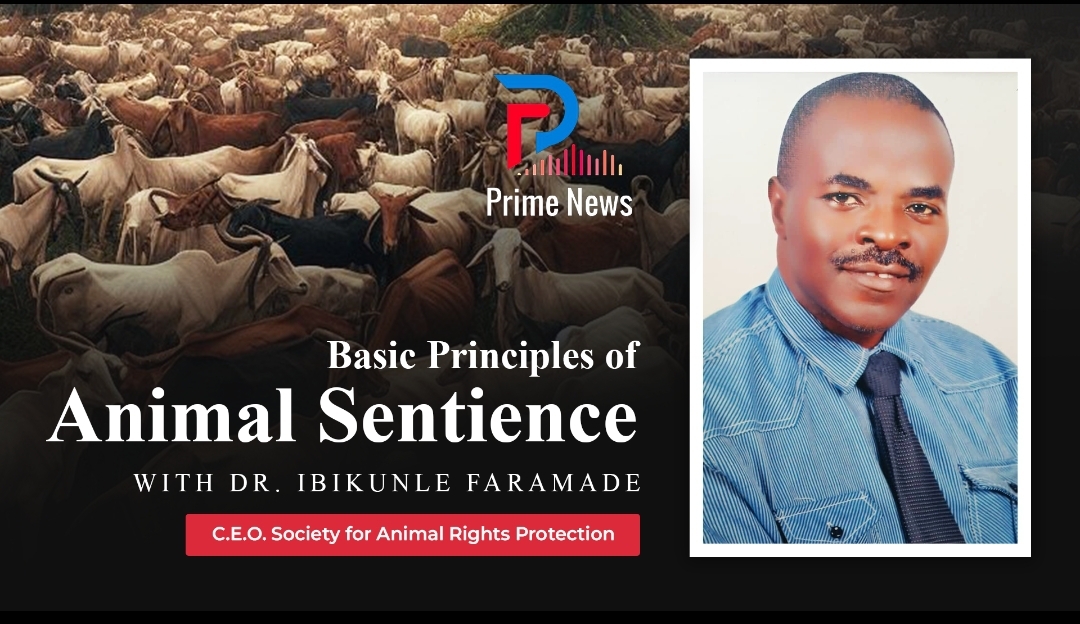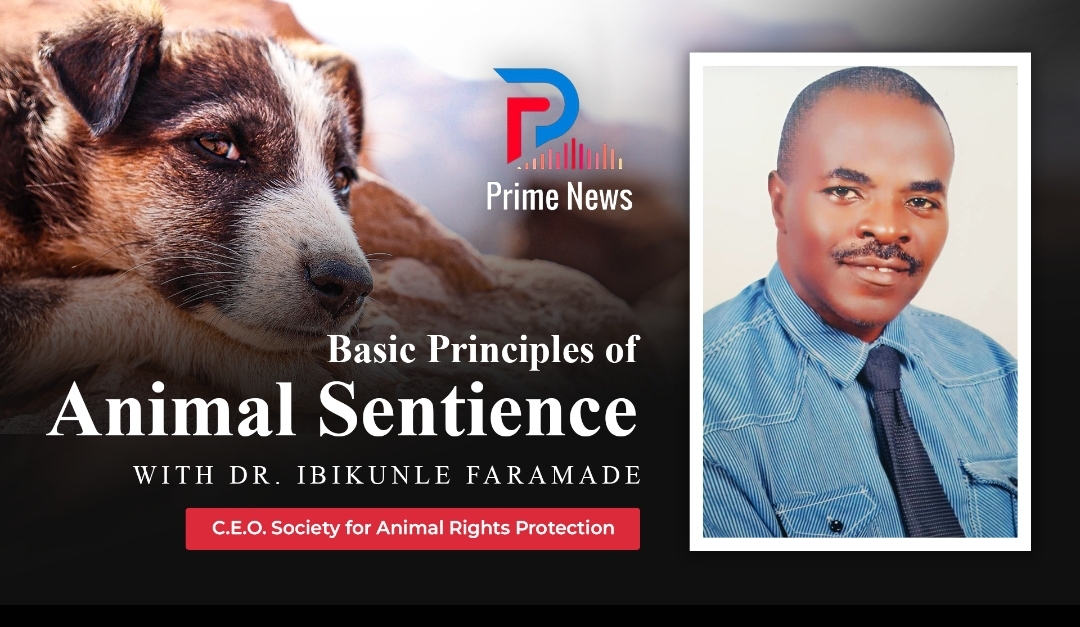 By Dr Ibikunle Faramade
By Dr Ibikunle Faramade
According to the World Organization for Animal Health (WOAH), Animal welfare means the physical and mental state of an animal in relation to the conditions in which it lives and dies. The five cardinal and universal principles of animal welfare include:
- Freedom from hunger, thirst and malnutrition;
- Freedom from fear and distress;
- Freedom from physical and thermal discomfort;
- Freedom from pain, injury and disease;
- Freedom to express normal patterns of behaviour
As dry season sets in, taking its toll on all living things and the environment, it is important to consider the welfare of animals, especially, the captive wild animals and domestic animals. This is so because, in the wild, animals have adapted to seasonal changes. By instinct, they fend for themselves, seeking pasture and water anywhere they could find them.
The most important welfare concern for animals in the dry season is the challenge of hunger, thirst and malnutrition, especially, those that are under restriction as captive animals in the zoological gardens and those under intensive production systems (on the farms).
The genesis of the conflict between herders and farmers is the challenge of pasture and water availability as animals kept on free range or nomadic/trans-humance system seek means of survival. That is why making provision for animal feed and water in this season is very germane to reduce this age-old friction. It is instructive to note that among the ‘five freedoms’ developed in 1965 by the Brambel Commission, which was meant to guarantee animal welfare, with subsequent global applause, the ‘first freedom’ is the freedom from hunger, thirst and malnutrition.
Therefore, all animal owners, farmers or animal care givers should ensure that adequate feed and water are made available to the animals. There are various means by which this could be achieved. The ruminants (which are primarily herbivorous) could have feed supplementation through the use of crop residues and compounded ration. Hay and silage could also be of great help in this season of little or no vegetation. Water should be provided freely but kept under shade (away from direct rays of the sun). The same principles apply tom other categories of animals. Farmers practicing industrial livestock/poultry farming are known to place high premium on these practices because they know that there is a strong association between adequate and regular feed and water intake and attainment of market weight. Small and medium scale farmers should also not lose sight of this. In addition, captive wildlife would require more than casual attention in this season when water shortage is certain. Zookeepers should therefore do the needful to ensure the availability of cool water for animals in their custody.
The ‘third freedom’ that we should strive to guarantee animals in this season of dryness is the freedom from physical and thermal discomfort. Global warming has led to increase in ambient temperature. This would definitely exacerbate the challenge of high ambient/environmental temperature that could affect the welfare of animals negatively. Livestock farmers, from experience, knows that excessive heat is inimical to the wellbeing of animals. This is the season when pigs are most prone to heat stroke. Pigs lack sweat gland, hence they cannot reduce their body temperature through sweating. That accounts for the practice of wallowing in any available pool of water, which makes the pig to be viewed as a dirty animal! The pig that is not kept in confinement has no other means of cooling off! Those in confinements should be provided with special water retaining partitioning referred to as wallow. That could also be supplemented with automated water sprinkler to ensure that pigs are prevented from excessive heat. The roofing materials and roofing pattern of piggeries go a long way to prevent heat radiation from the sun and also ensure good ventilation. Therefore, experts should be contacted before the design of farm structures. Similar caution should also be exercised when constructing a poultry pen. The orientation of the building should be fashioned in a manner generally referred to as “East West”, with adequate ventilation. Stocking density should not exceed recommended standards to prevent overcrowding and stampeding. Thermometers for monitoring of temperature should be installed in the pen. Adequate supply of drinking water should be guaranteed. Overhead tanks where water is stored should be shielded from direct rays of the sun.
Chicken at the brooder phase should be closely monitored to prevent excessive heat accumulations that could become counterproductive. Stocking density of the chicks should be closely monitored to balance their growth with available space. This is not the season when energy levels of different feeds (rations) would be left unchecked. Feeding animals, especially birds with feed rich in excess energy should be discouraged to prevent fatalities.
 All these practices combined would go a long way to ensure that animals are not adversely affected by the rising ambient temperature associated with dry season.
All these practices combined would go a long way to ensure that animals are not adversely affected by the rising ambient temperature associated with dry season.
In conclusion, husbandry practices that could enhance the welfare of farm animals and poultry should be heightened to prevent losses during the dry season. The welfare of captive wild animals is crucial this season too. Zoo keepers should not take anything for granted to prevent avoidable losses.
Dr. Ibikunle Faramade is a veterinary pathologist, sustainable development practitioner, animal welfare advocate and a lecturer at the Federal College of Animal Health & Production Technology, Apata. Ibadan. He’s the C.E.O of the Society for Animal Rights Protection, a non-profit and a non-governmental organization dedicated to the promotion of animal welfare, animal rights and prevention of cruelty to animals. animalrightsprotection2020@gmail.com , +2348028305284
Share your story or advertise with us: Whatsapp: +2347087199444 Email: primenewsnig@gmail.com




